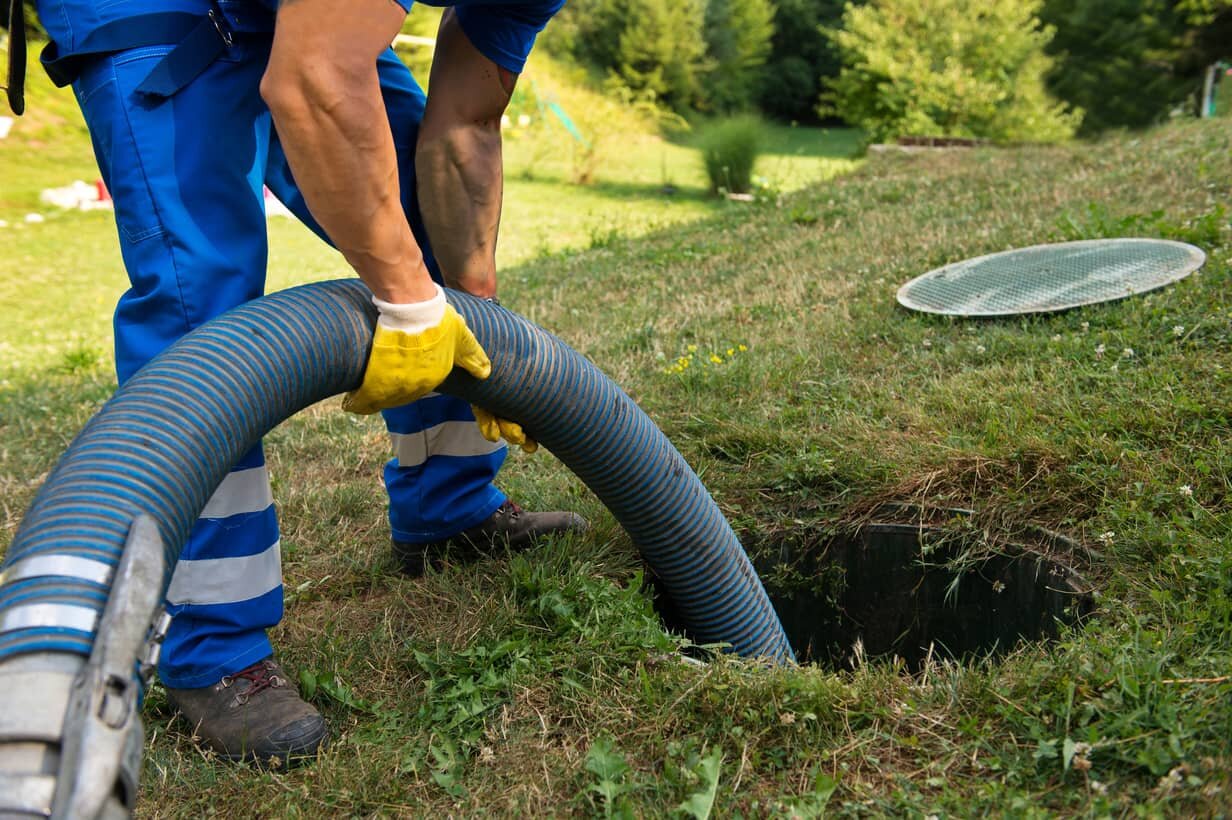Drano is a popular chemical drain cleaner that provides a quick and easy solution for clogged drains. But if you have a septic system, you may be wondering if Drano is safe to use.
The short answer is no, Drano and other chemical drain cleaners are not recommended for septic systems. The harsh chemicals in these products can damage pipes, disrupt helpful bacteria, and cause serious issues with your septic tank.
In this article, we’ll cover:
- How septic systems and Drano work
- The chemicals in Drano
- The importance of septic bacteria
- The risks of using Drano with septic tanks
- Safer drain cleaning alternatives
- Signs of septic system damage
- When to call a septic professional
Understanding Septic Systems and Drano
To understand the potential risks, let’s look at how septic systems and Drano work.
How Septic Systems Function
Septic systems rely on natural bacteria to break down waste. Inside the septic tank, solids settle on the bottom as sludge while clarified effluent flows out to the drain field. The bacteria digest and decompose the sludge.
Maintaining these bacteria is crucial. Without them, solid waste builds up quickly and requires much more frequent and expensive pump outs. Harsh chemicals can kill these essential bacteria.
What’s in Drano?
Drano uses a combination of chemicals to clear clogs by rapidly dissolving organic matter like hair, grease, and food. Typical ingredients include:
- Bleach – Sodium hypochlorite
- Aluminum
- Lye
- Sodium chloride
- Sodium nitrate
When combined, these chemicals create an intense exothermic reaction that liquefies and disintegrates clogs.
Why Drano is Harmful to Septic Systems
While highly effective at clearing clogs, Drano can damage septic systems in several key ways:
Kills helpful bacteria
- Bleach is extremely destructive to bacteria even in small amounts.
- The intense chemical reaction can sterilize the entire septic tank.
- Without bacteria, solid waste accumulates much faster.
Weakens and corrodes pipes
- The extreme heat degrades PVC and other plumbing materials.
- Can lead to cracks, leaks, and collapse.
Requires frequent pump outs
- With bacteria depleted, sludge cannot break down properly.
- Causes rapid buildup of solids in the tank.
- More frequent and costly pump outs become necessary.
Safer Alternatives to Unclog Drains
While convenient, Drano and other drain cleaners are simply too hazardous for septic system plumbing. Here are some safer alternatives:
Boiling water
- Boil a pot of water and carefully pour down the drain.
- Effective for sinks clogged with grease, soap, or small food particles.
Plunger
- Use a sink plunger to plunge the drain and dislodge clogs.
- Works best when drain has standing water to create suction.
Baking soda and vinegar
- First pour baking soda down the drain, then follow with vinegar.
- The reaction bubbles and loosens debris. Finish by flushing with hot water.
Mechanical snake
- Insert a mechanical drain snake down the pipe to physically break up and grab clogs.
- Available at hardware stores. Use gloves and a bucket to catch debris.
Enzyme treatments
- Regularly treat drains and septic system with enzymes to break down organics naturally.
- Available at hardware and home improvement stores.
Signs of Septic System Damage
If you have used drain cleaners in your septic system, watch for these signs of potential damage:
- Slow draining fixtures or clogged drains
- Sewage backup into the home
- Foul odors around septic tank and drains
- Standing water or soggy ground above the tank or drain field
- Need to pump tank much more often than usual
Any of these could indicate harm to your septic system from drain cleaner chemicals. Call a pro right away if you experience them for diagnosis and repair.
When to Call a Septic Professional
While periodic pumping is normal septic maintenance, avoid DIY repairs if you suspect damage. Instead, call in the experts:
- For septic repairs, replacement, or new installation
- If you may have harmed your system with drain cleaner
- For inspections before buying or selling a home
- If you notice foul sewage odors or plumbing issues
- To pump the tank if needed
Septic pros have the tools and knowledge to accurately assess the problem and fix it. Don’t wait until you have a plumbing emergency. Call at the first sign of trouble on your property.
Is There Truly a Septic Safe Drain Cleaner?
No drain cleaner is 100% safe for septic systems. Even products labeled “septic safe” still carry risks. The only sure way to prevent damage is to avoid chemical drain openers completely.
Protect your system by using mechanical and non-toxic home remedies first. Call a professional plumber or septic contractor if those don’t solve the problem.
Key Takeaways
-
Drano and chemical drain cleaners are not recommended for septic systems.
-
The chemicals disrupt helpful bacteria and can corrode pipes.
-
Use boiling water, plungers, enzymes, or mechanical snakes instead.
-
Call a septic pro if you have signs of damage or need repairs.
Avoid the temptation to use harsh chemical drain openers if you have a septic tank. Preventing damage in the first place is cheaper than repairing a harmed system. Contact a septic professional in your area for assistance maintaining your septic system.
